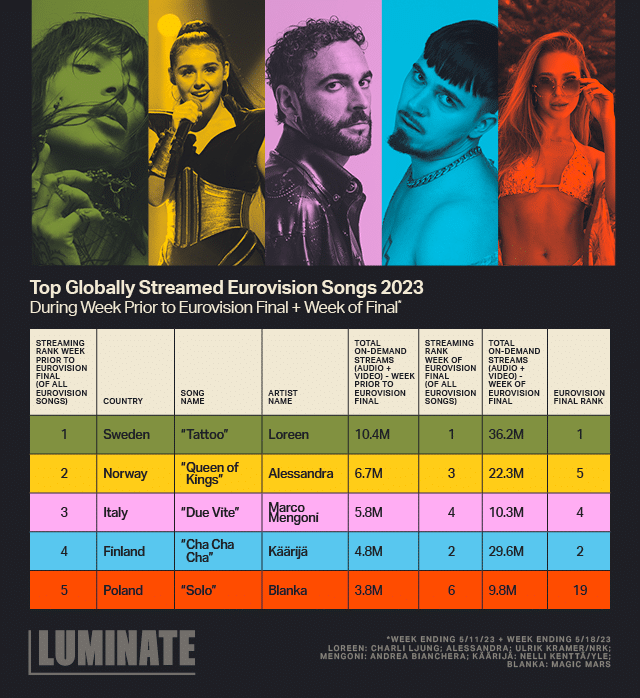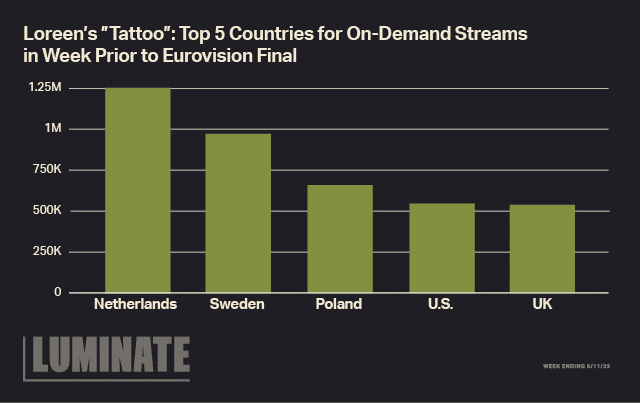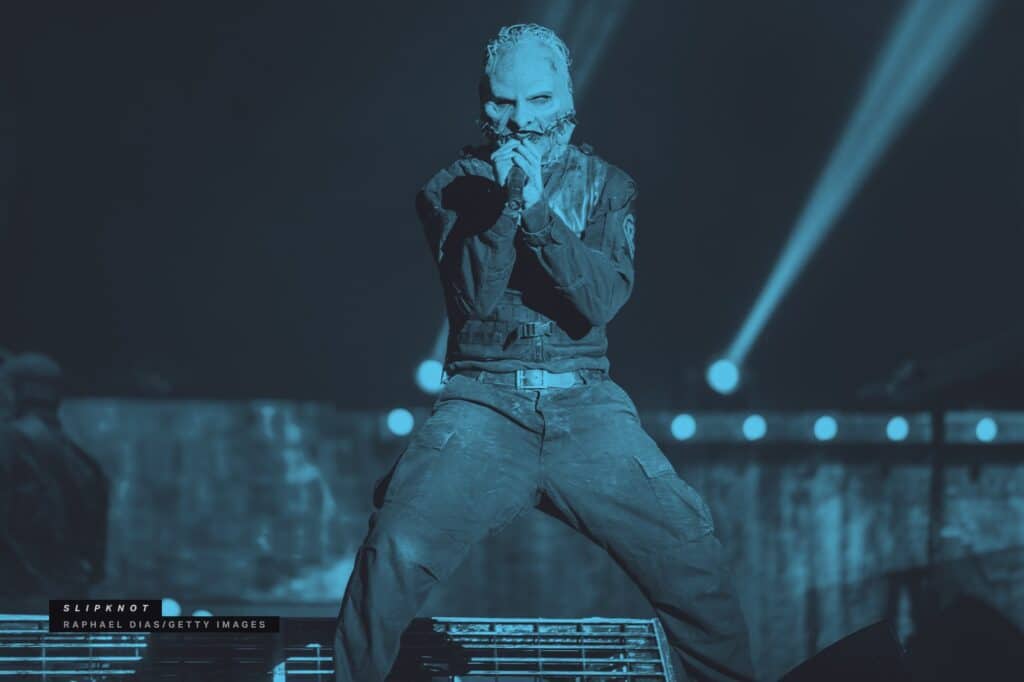On Saturday 13th May, Sweden won the Eurovision Song Contest 2023, represented by Loreen who made history as the second contestant to win the contest twice. While streaming is not always the predictor of success at a contest where the visual element is a large part, Loreen’s “Tattoo” was the most streamed song in the week prior to Eurovision. This year Blanka from Poland was the only outlier, not performing as well with the juries and the public as her streaming numbers would suggest.

Eurovision is the most watched music competition in the world, and current estimates of 2023’s viewership are 160M viewers worldwide. According to Luminate’s Music 360 study in the US and Canada, 7% of the general population has watched Eurovision. However, among the “Big Five” participating countries, it is the most popular music competition show, reaching 69% viewership in Spain among the general population, 45% in Italy, 41% in France, 31% in the UK and 24% in Germany.
Such a large platform creates opportunities for artists from any of the 37 participating countries to break internationally. The contest encapsulates the trend of simultaneous globalization and localization in the music industry. Some artists take a “generic Western pop” approach to connect with the diverse global audience; usually this means a dance-pop number sung in English (eg. this year’s Norway and Poland contestants). Other artists stick to their own language and showcase their cultural heritage to stand out (eg. Moldova).

A recent development in Eurovision’s influence on the global music scene is the clear Eurovision to TikTok virality pipeline. Something TikTok has capitalized on as Eurovision’s official entertainment partner for the second year running. Måneskin, the Italian rock winners in 2021, subsequently went viral on TikTok with “Beggin” achieving 3x Platinum certification in the US. According to Luminate’s Artist and Genre Tracker, awareness of Måneskin among music listeners in the US remains at 10%, and 62% of those familiar with the band enjoy them. More examples of Eurovision contestants that found fame on the short video app include Rosa Linn (Armenia), whose song “SNAP” (2022) has over 1.5B total on-demand audio and video streams, Duncan Lawrence (Netherlands), whose song “Arcade” (2019) has close to 14B total streams, and Netta (Israel), whose song “Toy” (2018) reached over 878M total streams.
Fundamentally, Eurovision and TikTok are both entertainment platforms where artists have an opportunity to connect with a global audience. The diversity of what succeeds is the core attraction for fans of the competition and app alike – whether it’s a Gen Z rock anthem, a Euro club banger or a representation of local culture. We wait to see what this year’s runaway streaming success will be.
Source:
The Eurovision Song Contest 2023 in Numbers
The “Big Five” (formerly “Big Four”) are the group of countries who make the biggest financial contributions to the European Broadcasting Union (EBU).
Luminate Music ConnectATD global audio and video streams as of Chart Week 19 (Friday 5th May – Thursday 11th May 2023)

